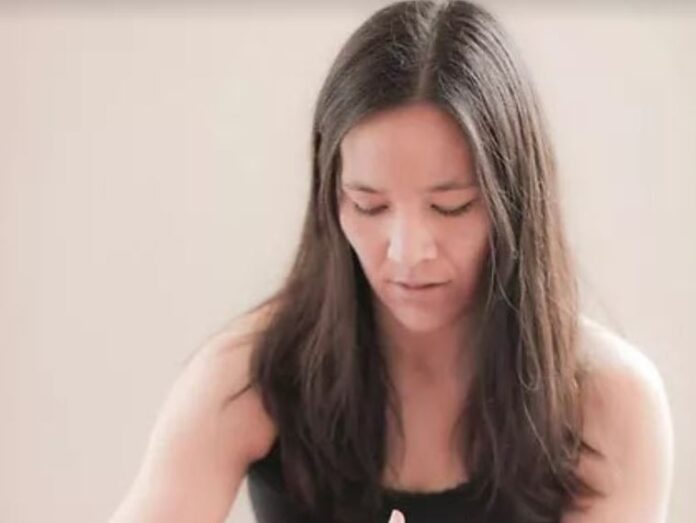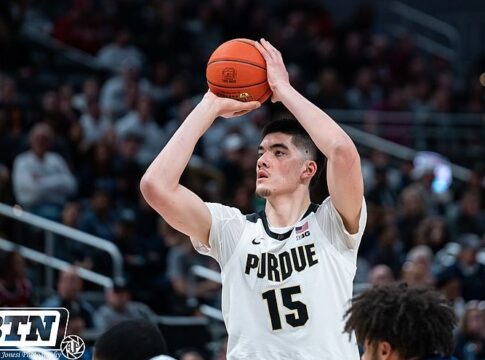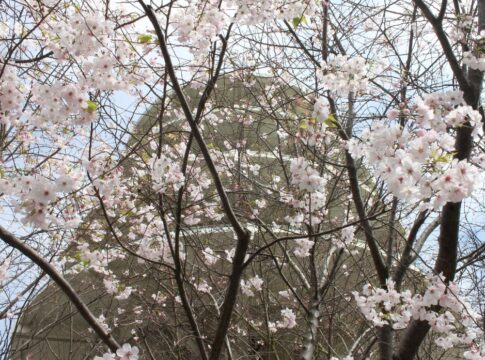By Allyson Pang, AsAmNews Intern
On a little mountain home outside of town in rural Idaho, Jenny Liou gained a love for martial arts at a young age through her father. Little did she know that in 2011, she would become a professional MMA fighter.
Since she began a career as an MMA fighter in 2011, Liou had a recorded six wins and five losses, according to Sherdog.
When she retired in 2017, Liou felt like her identity had been severed.
“How do you go from a lifestyle where a certain degree of violence is just part of it?” she remembered thinking. “How do we find our way into getting to live in multiple worlds at once?”
LATEST STORIES
To fill the gap where martial arts once was, Liou found herself drawn into poetry.
About a decade ago, Liou began writing her book “Muscle Memory,” which is released on Oct. 25. According to her page on Kaya Press, the poetry collection captures how violence and history passes between generations, and whether healing is possible without forgetting.
The book started in prose until she found poems to be more fitting. Editors at Kaya Press–a book publisher of AAPI diaspora–helped to narrow her focus towards the community impacts on Asian women and addressing such issues in a time of anti-Asian and anti-women violence.
At the end of the process, Liou said she barely thought of it as a book about fighting. Instead the book discussed violence as how to control it, how to endure it, and most importantly, how to find a way beyond it.
Poetry and martial arts
Similar to martial arts, Liou’s love for poetry began with her father. He gifted a wax drum to her, hoping to interest her in becoming an engineer, just like him. Etched into the wax were recordings of Walt Whitman reading his own poetry.
“He thought it was the coolest engineering marvel, that you could listen to voices from hundreds of years ago just etched in wax,” she said.
The drum had a different effect on her, instead Liou became obsessed with poetry. As a child, she often memorized poems from anthologies that she asked her parents to buy her. To this day, she still randomly remembers some of them.
Despite Liou’s fascination with reciting memorized poems, she admitted that she does not memorize her own poems.
“My poems to me, they feel like Rubix Cubes,” Liou said. She believed the lines were ever-changing every time it was read.
Her two interests were more similar than they appeared.
Poetry and martial arts were tangible; you learned a technique and practiced it until it was tailored for you. With jujitsu, Liou said “there’s still that cerebral component but it’s so immediately translated into something that’s physical.”
“She’s just badass”
Following retirement, Liou has since made connections with a variety of writers.
Creative nonfiction writer and associate professor at Michigan State University Mike Copperman said he does not know many people who have such a range of interests like Liou.
The two met at the Bread Loaf Writers’ Conference and connected through a love for writing as well as a history of being fighters. As a former wrestler, Copperman felt like he could really relate to “Muscle Memory.”
“The ways that she writes about fighting really does offer a sensory experience where you can understand even if you haven’t ever been a fighter,” he said. “[With] the way that Jenny talks about fighting, it becomes relatable to anyone who’s ever lived life in a body.”
The poems relate to anyone from athletes to being someone who wants their body to conform to a certain expectation, Copperman said.
Besides martial arts and poetry, Copperman said Liou also has an interest in environmental activism.
Her background in biology and interest in nature is what connected Washington State University English professor and poet Linda Russo to her.
Both poets met in Moscow, Idaho at a monthly poetry group where Russo remembers Liou reciting a variety of memorized poems.
“It was the way she was complicating the way we look at the natural world and some of the assumptions about the relationship between humans and the environment,” Russo said about one of Liou’s essays. “And especially for her, it had to do with perceptions of race and racism in terms of the outdoors world.”
Being a writer of color
Like a lot of writers of color, Liou grew up reading a mostly White canon.
“I thought that’s what I wanted to be writing because I didn’t know any different,” she said. “And I think I was mostly surrounded by people who weren’t going to tell me any different.”
As an Asian and mixed-race woman, she questioned the translated pressures of how one was supposed to “behave.”
Liou admitted it took a long time before realizing who she was writing for and to find pride in that. She found that unless one started off in a community of Asian women and writing for an Asian audience, she sometimes felt silenced or not so silently discouraged.
“We’re taught to tighten our poems, distill our poems, and take up as little room as possible. I think this was converging into specifically Asian women stereotypes and pressures,” Liou said.
It was eye-opening and liberating to realize that her poems did not have to be that way.
“What if I wanted to make my poems messy?” she said. “What if I want to be like ‘this is a single breath that I just want to yell it really loud and it’s all going on the same line? Sorry, you’re going to have to change the margins.’”
She encourages young writers to have the revelation that poetry is a way of “making yourself and not just a way to whittle away at yourself.”
Connections to community and family
An unexpected theme that arose from “Muscle Memory” was family.
“I think of it as a book about how we hang on to our family’s traditions and whether that’s a good thing or whether we end up reapplying certain kinds of violence that happen within our families,” she said.
The book also prompted her to think about her own family’s relationship.
The world was hard for her parents. Liou’s father’s family fled from China to Taiwan until he eventually moved to the U.S and had to transition into a new way of life. When he married her mother, a White woman from Pennsylvania, Liou said her mother often faced threats for having mixed-race children.
For her, the biggest change was to unlearn the idea of fighting as keeping the world away. Instead, she began to view fighting as a way of building community and reconnecting with family.
“How do we rebuild communities, rebuild those family connections, and get used to that uncomfortable closeness that jujitsu forces you to un-metaphorically consider?” Liou said.
What makes “Muscle Memory” different?
Alongside themes of family, immigration and identity, the book captured the “willingness to look closely at all those things that we do that are love but don’t always look or feel like love,” Liou said.
Copperman praised even the early drafts of “Muscle Memory” as a wonderful and a rich read.
“[It’s] one which does not sound or inhabit the same spaces that we’re used to seeing in poetry,” he added. “The book speaks to the moment, but it also speaks to the experiences of a lot of us who have grown up in the West, which is often thought of as being this utopian racial ideal which is often actually actively a racist place against Asian Americans.”
Russo has not read “Muscle Memory” but said to expect to experience a different perspective and to be challenged in a good way.
“What my book is attempting to do that I maybe don’t see so often in other author’s pages is to grapple really directly with violence as something that exists in all of our lives and not something that existed in countries that we fled a long time ago,” Liou said.
Within poetry, she hopes to recreate that sense of making concepts “tangible” just as martial arts and poetry have done for her.
“[It’s] important to complement all these narratives about how the past haunts us with an exploration of the ways in which that violence is still all around us right now,” Liou said.
Support indie bookstores and order “Muscle Memory” on Bookshop or through Kaya Press. AsAmNews receives a small commission through books purchased using the Bookshop icon above.
AsAmNews is published by the non-profit, Asian American Media Inc. Follow us on Facebook, X, Instagram, TikTok and YouTube. Please consider making a tax-deductible donation to support our efforts to produce diverse content about the AAPI communities. We are supported in part by funding provided by the State of California, administered by the California State Library in partnership with the California Department of Social Services and the California Commission on Asian and Pacific Islander American Affairs as part of the Stop the Hate program. To report a hate incident or hate crime and get support, go to CA vs Hate.








